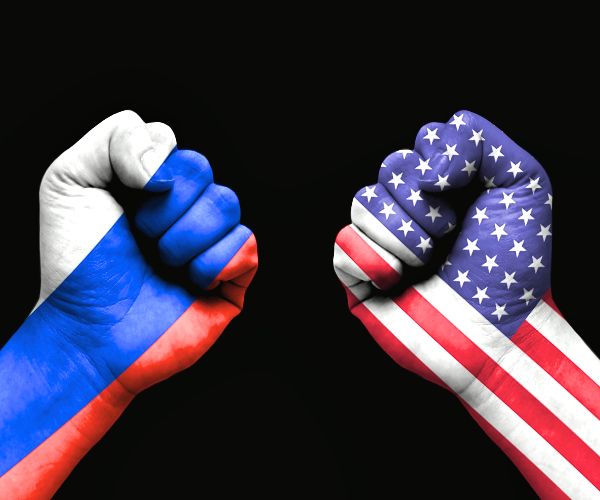US, Russia seek to ease tensions in first meeting of Biden Administration

The U.S. and Russian foreign ministers sought Wednesday to ease tensions in their first meeting since President Joe Biden took office, saying they were ready to cooperate but issuing firm warnings reflecting the wide gulf between the rival powers.
Despite the many “differences”, “our view is that if the leaders of Russia and the United States can work together cooperatively … the world can be a safer and more secure place,” U.S. Secretary of State Antony Blinken said at the start of talks with his Russian counterpart Sergei Lavrov in Reykjavik, aimed in part at confirming a potential summit between presidents Biden and Vladimir Putin.
“But if Russia acts aggressively against us, our partners, our allies, we will respond,” Blinken said, reiterating that Washington wants a “predictable and stable” relationship with Moscow.
“We are ready to discuss all issues without exception if we understand that discussions will be honest and based on mutual trust,” Lavrov responded.
The statements preceding the face-to-face talks on the sidelines of the Arctic Council meeting in Iceland do not bode well for the de-escalation of tensions that both countries say they want, with relations at their lowest point since the end of the Cold War.
Blinken called for Arctic — a new geopolitical issue at the heart of the regional meeting Wednesday and Thursday in Reykjavik — to become a laboratory for cooperation focused on common challenges such as the fight against global warming.
But Lavrov issued a strongly worded warning on Monday.
“It has been absolutely clear for everyone for a long time that this is our territory, this is our land,” Lavrov said at a press conference in Moscow.
The Russian foreign minister at the same time accused Norway of “trying to justify the need for NATO to come into the Arctic”.
He insisted Russian military activity in the region is “absolutely legal”.
The Russian warning inevitably drew a response from Blinken, who on Tuesday stressed that Washington wanted to “avoid a militarisation” of the Arctic.
“We have concerns about some of the increased military activities in the Arctic. That increases the dangers or prospects of accidents,” Blinken said.
On Wednesday, during a meeting with his Canadian counterpart Marc Garneau, Blinken stressed his country’s desire “to preserve this region as a place for peaceful cooperation,” on such issues as climate change, science and sustainable development.
– Nord Stream 2 –
Since taking over the White House in January, Biden has taken a strong line against Russia, going as far as describing Putin as a “killer” — in sharp contrast to his predecessor Donald Trump, who was accused of complacency towards the Russian leader.
But there are signs the sides are seeking to appease each other.
Just before the meeting in Reykjavik gathering the nations bordering the Arctic, the White House announced it would not sanction the main company involved in the controversial Nord Stream 2 gas pipeline project between Russia and Germany, Nord Stream AG, and its managing director.
Sanctions are still planned against some entities, but the Biden administration wants to avoid antagonising Berlin and in so doing has done Moscow a favour, clearing a major obstacle for the pipeline to go ahead despite its own opposition to the project.
Meanwhile, Lavrov stressed the need for “building and maintaining bridges and dialogue”, and said he was ready to “plough through the rubble left over from previous US administrations” to ensure the proper functioning of U.S. and Russian diplomatic missions, currently reduced to minimum service following tit-for-tat expulsions of diplomats.
– Summit hurdles –
Biden and Putin have agreed in principle to hold their first summit, possibly in June in a European country following a G7 summit and a NATO leaders’ meeting.
Both of those events are expected to display a united anti-Moscow front.
On Monday, Blinken said he expected the summit to happen in the next few weeks.
Russian deputy foreign minister Sergei Ryabkov cautioned on Wednesday that there were still some hurdles to cross.
“We haven’t yet agreed on a time or place. Before agreeing on this, we need to fully analyse how the United States views the current agenda,” Ryabkov said.
A specific date and venue are likely to be announced in the days following the Reykjavik meeting.
© AFP 2021
For more on this story go to: NEWSMAX





